As we move into 2025, developers are leveraging Large Language Models (LLMs) to streamline coding tasks, enhance productivity, and build better software faster. From code generation to debugging, these LLMs are becoming indispensable. Here’s a comprehensive review of the best LLMs for coding and development in 2025, along with their pros, cons, and pricing.
1. GitHub Copilot
Overview: GitHub Copilot, powered by OpenAI’s GPT-4, integrates directly with Integrated Development Environments (IDEs) such as Visual Studio Code and JetBrains. It offers real-time code suggestions, autocompletion, and debugging support. Copilot assists developers by providing inline code suggestions as they type, which speeds up development.
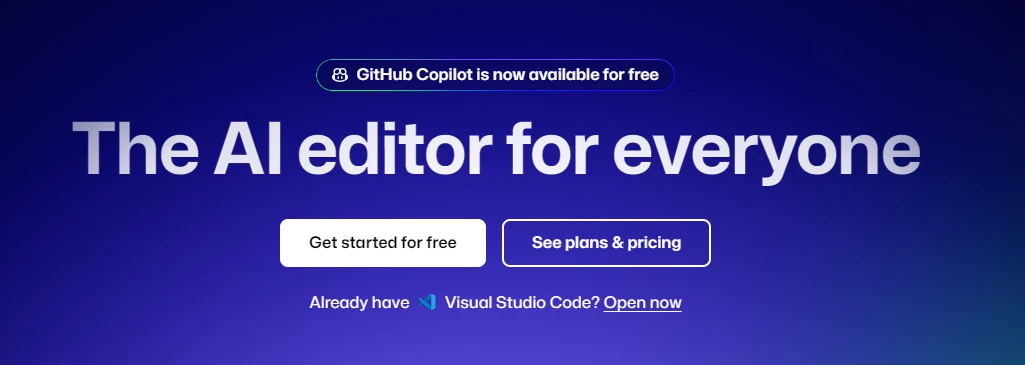
Pros:
- Seamless integration with VS Code and JetBrains IDEs
- Real-time code completion and contextual suggestions
- Multi-language support (Python, JavaScript, C++, etc.)
- Improved productivity and reduced repetitive coding tasks
Cons:
- Occasional irrelevant or incomplete code suggestions
- Limited support for non-mainstream programming languages
- Monthly subscription fee required for full access
Pricing:
- Free Tier: Available
- Individual Plan: $10 per month / $100 per year
- Business Plan: Custom pricing based on team size
2. Phind
Overview: Phind is an AI assistant designed for developers, offering powerful coding support that rivals GPT-4. It’s known for its fast response times and high accuracy in handling developer queries. Phind achieves up to 82.3% pass@1 on HumanEval and processes 100 tokens per second—significantly faster than GPT-4.
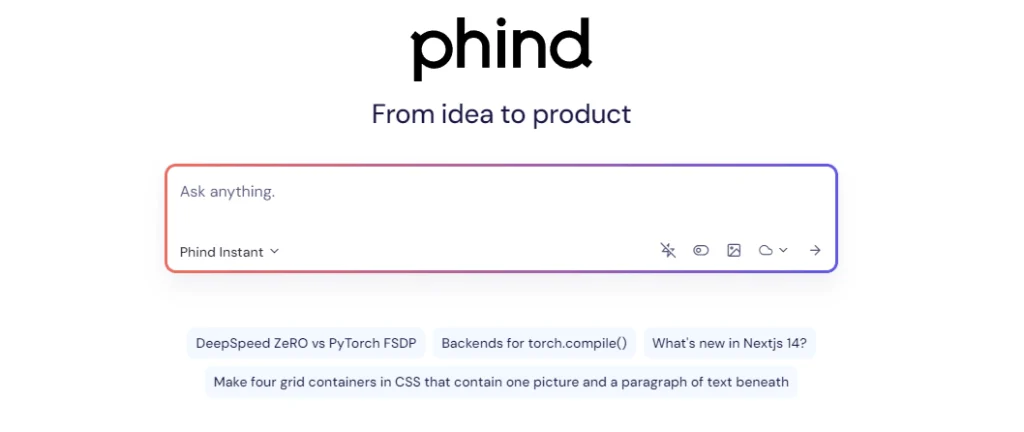
Pros:
- Faster processing speed (100 tokens/second) compared to GPT-4
- High accuracy in generating code solutions
- Capable of handling a 16K token context window
- Excellent for technical searches and debugging support
Cons:
- Limited IDE integrations compared to GitHub Copilot
- User interface may feel less polished for some developers
- Relatively new compared to established competitors
Pricing:
- Individual Plan: Pricing details not publicly available, typically usage-based
3. Llama 3
Overview: Meta AI’s Llama 3 is one of the leading open-source LLMs for coding and text generation. Available in sizes of 405B, 70B, and 8B parameters, Llama 3 excels at understanding and generating multi-language code. As an open-source model, it offers developers unparalleled freedom to customize the model for specific use cases.
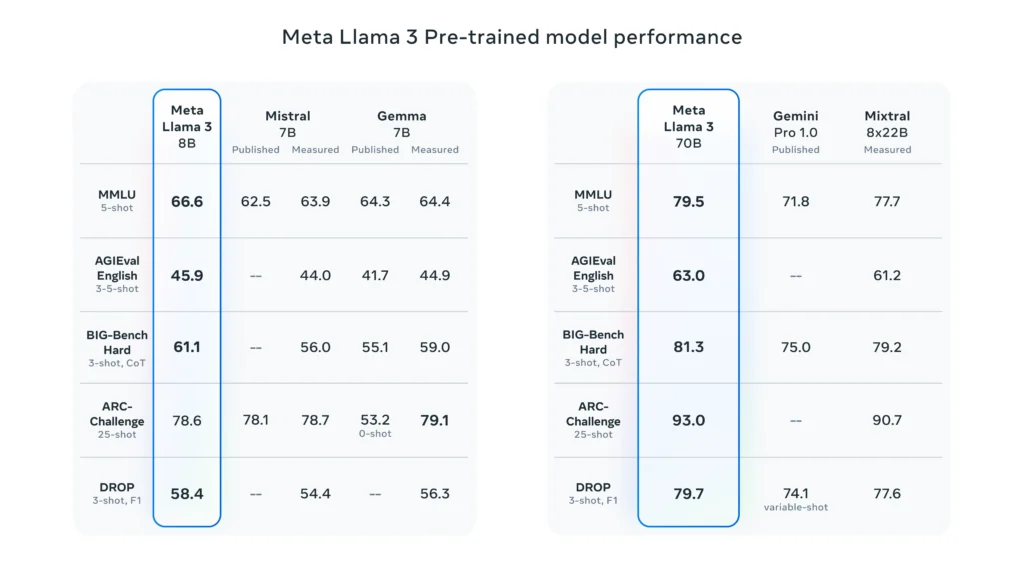
Pros:
- Open-source, allowing for full customization
- Supports over 30 languages, including English and non-English languages
- Available in multiple sizes to suit different use cases (405B, 70B, and 8B parameters)
- Advanced safety measures to ensure safe usage
Cons:
- Higher resource requirements for self-hosting larger versions (like 405B)
- Limited support for direct IDE integrations
- Requires technical expertise to fine-tune and deploy
Pricing:
- Free (open-source) but requires significant computational resources for deployment
4. Claude 3.5 Sonnet
Overview: Claude 3.5 Sonnet is Anthropic’s newest LLM, optimized for safety and reliability. It’s an excellent choice for developers concerned about ethical AI use.
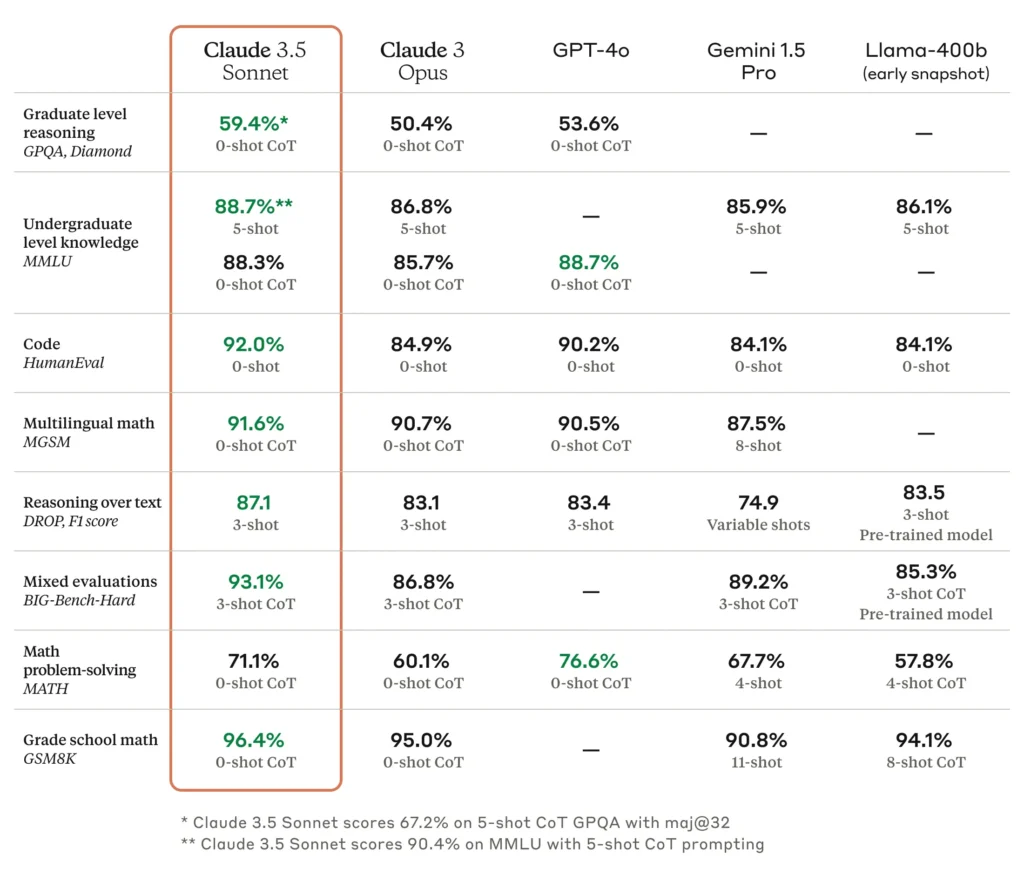
Pros:
- Exceptional reasoning skills: Great for debugging and algorithm generation
- Ethically aligned: Reduces the risk of harmful outputs
- Efficient API integration: Works seamlessly with various tools
Cons:
- Limited coding dataset: May struggle with niche programming scenarios
- Costly for high-volume usage: Pricing can add up quickly for larger projects
Pricing:
- Custom pricing based on model selection and enterprise needs
5. GPT-O1
Overview: GPT-O1 is OpenAI’s cutting-edge LLM, known for its unmatched ability to understand and generate human-like code.

Pros:
- Top-notch natural language understanding: Makes coding queries feel conversational
- Robust ecosystem: Integrates well with tools like GitHub Copilot
- Frequent updates: Regular improvements ensure state-of-the-art performance
Cons:
- Proprietary model: Less customizable compared to open-source options
- High computational cost: May require cloud-based solutions for optimal use
Pricing:
- Subscription-based pricing with tiered plans
6. Gemini Exp 1206
Overview: Gemini Exp 1206 is Google’s experimental model, pushing the boundaries of what LLMs can do in the development space.
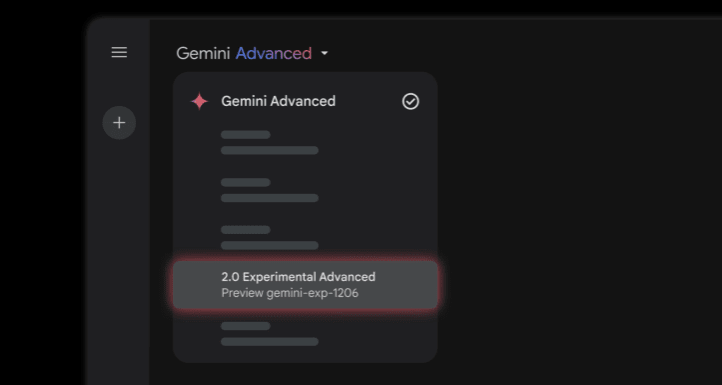
Pros:
- State-of-the-art innovation: Incorporates the latest AI advancements
- Multi-language support: Covers a wide array of programming languages
- Creative solutions: Excels in generating unique approaches to coding problems
Cons:
- Still in development: May have bugs or inconsistencies
- Resource-heavy: Requires high-end hardware for smooth operation
Pricing:
- Custom pricing for enterprise use
7. Gemini Flash 2.0
Overview: Gemini Flash 2.0 is part of Google DeepMind’s Gemini series, designed for speed and real-time coding assistance. It’s a favorite among developers needing quick solutions.
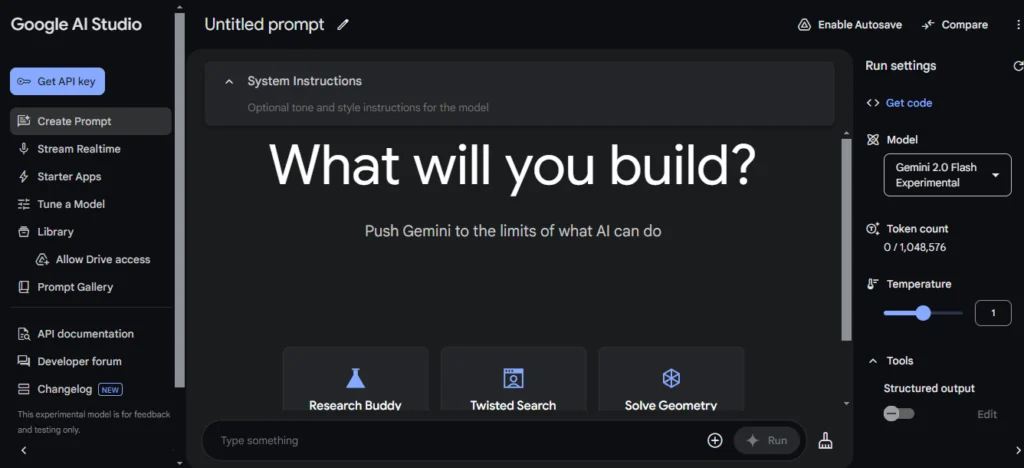
Pros:
- Blazing fast: Delivers responses in record time
- Seamless integration: Works smoothly with Google Cloud tools
- Intuitive interface: Beginner-friendly for new developers
Cons:
- High pricing tiers: Expensive for long-term usage
- Limited customizability: Not open-source
Pricing:
- Usage-based pricing with flexible plans
Comparison Table
Comparison Table
| LLM | Price | Customization | Integration | Speed | Code Languages |
|---|---|---|---|---|---|
| GitHub Copilot | $10/month | Limited | Full IDE Support | Medium | High |
| Phind | Usage-based | Limited | Minimal integration | Fast | High |
| Llama 3 | Free | Full | None | Variable | High |
| Claude 3.5 | Custom pricing | Limited | Full API Support | Medium | High |
| GPT-O1 | Subscription | Limited | Custom integration | Fast | High |
| Gemini Exp 1206 | Custom pricing | Full | Limited | Medium | High |
| Gemini Flash 2.0 | Usage-based | Limited | Full API Support | Fast | High |
Why to Choose Your LLM?
Now a days, Large Language Models (LLMs) has expanded significantly, offering developers a wide range of options tailored for different needs:
- GitHub Copilot: Ideal for those seeking seamless IDE integration and user-friendly features.
- Phind or Gemini Flash 2.0: Best for high-speed, on-demand code assistance.
- Llama 3 and Qwen Qwq: Perfect for those seeking an open-source, customizable solution.
- Claude 3.5 Sonnet: Stands out for ethical AI usage and strong debugging support.
- GPT-O1: Excels at human-like understanding of natural language, making it suitable for both development and support tasks.
- Gemini Exp 1206: Offers a glimpse into future innovation.
- Mistral: Excels in precision and domain-specific coding tasks.
Choosing the right LLM depends on your development needs, budget, and desired level of customization. Whether you prioritize speed, accuracy, open-source accessibility, or ethical alignment, there is an LLM in 2025 that meets your criteria.